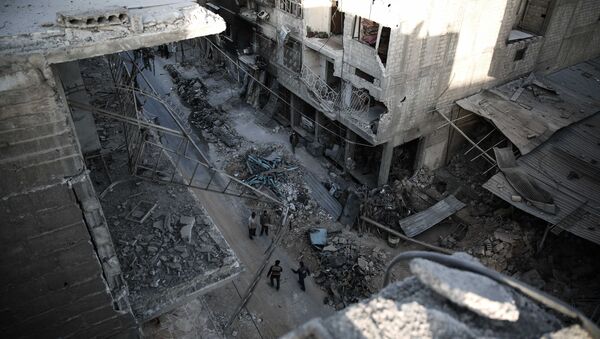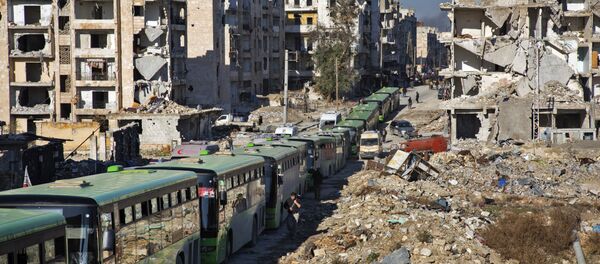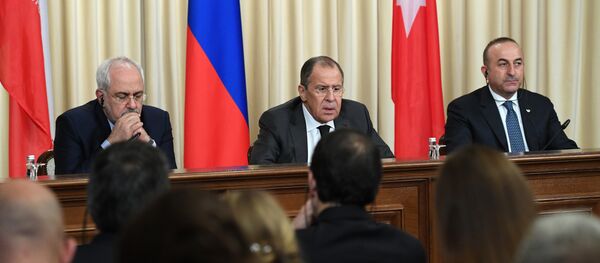Professor Erel Tellal of Ankara University told Sputnik that Russia and Turkey will "work increasingly more closely together" to tackle terrorism. Turkish diplomats said as much during a recent meeting with their counterparts from Russia and Iran in Moscow, he noted. The assassination of Russian Ambassador to Turkey Andrey Karlov, who was fatally shot in Ankara on Monday, has also reinforced this trend instead of disrupting it.
"This is why we can safely assume that forces behind this provocation have failed to achieve their goal," the professor said, describing Karlov's murder as a "tragic incident" and a "horrific crime."
However, Vzglyad columnist Petr Akopov pointed to several challenges on this path.
"Regardless of two extraordinary events which shook Russian-Turkish relations in the last 13 months (the Su-24 downing and the ambassador's assassination), another side of this triangle is its weakest link," he said, referring to Turkey's ties with Iran.
Akopov mentioned that these tensions were part of a larger picture. "These two civilizations have been rivals for centuries," the analyst noted, adding that even today, they have often pursued conflicting interests. Turkey aspires to become an "informal leader" of the Arab world, while Iran is trying to expand its influence on all Muslim countries, he said.
Despite the fact that Iran and Turkey do not always see eye to eye, they have a common enemy in Daesh and similar groups spreading radical ideology across the Middle East and beyond. This is why these two nations want to destroy the militants. Moreover, they also want to help Syria maintain its current borders, since the "divided or ruined" country will remain a "prime incubator" for extremists, Akopov explained.



